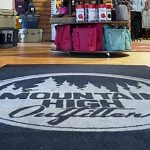The U.S. House and Senate have overwhelmingly approved language urging Customs and Border Patrol (CBP) not to revoke the “first sale” rule that has helped limit tariffs on billions of dollars in apparel, footwear and other sporting goods imports for 20 years. The language was inserted into the farm bill by the chairmen of the House Ways and Means and Senate Finance committees after furious lobbying by importers.
Both houses passed the bill by the more than the two-thirds majority Congress needs to override President Bushs threatened veto.
Without the bill, sporting goods manufacturers could have begun paying higher tariffs on imported finished goods as soon as this fall. Given that cost of landed product generally increases five fold by the time it reaches consumers, the change would have added significant inflationary pressure at a time when transportation and Chinese labor costs are already raising costs at a double-digit pace.
“In this economy, our company cannot easily absorb these without adversely affecting payroll or personnel,” stated a letter written April 23 by Bobbie Parisi, VP of Marketing for KEEN Inc.
“With the increase in the price of gas and food in our country, there could not be a worse time to add to this inflationary trend,” echoed Mark Martin, president of Jarden Apparel and Footwear, which owns the Marmot Mountain, Ex Officio, Marker Skiwear and Adio brands.
The Farm bill language makes it much more difficult, although not impossible, for CBP to revoke the rule, said Alex Boian, director of trade policy for OIA.
“Its a pretty strong message to have chairmen of both committees insert this into the bill,” said Boian. “It would be very difficult for Customs to move forward on this now.”
CBP has used the “first sale” rule since 1987 to determine tariffs, which are calculated as a percentage of an imports value. Under “first sale,” that value is set by the first sale kicking off a transaction to import the product to the United States. In other words, retailers importing through middlemen could set the value at the price the middle man paid the factory.
In a complete reversal of its own policy and in contradiction of several circuit court rulings, CPB solicited comments in January on its intention to impose a “last-sale” rule, which would have set tariffs based on the last sale before entry into the United States.
That would mean profits by middle men and transportation and insurance costs could be included when calculating tariffs. In one example shared with BOSS, the landed cost of a jacket would increase from $18 to $25 including tariff. That, in turn, would increase retail prices by $35, or about 20%.
Some had backed CBPs proposal, noting that the first sale practice understated the value of goods being imported by big discounters like Wal-Mart and Target, thereby rendering American-made products less competitive. But it also provoked widespread condemnation from everyone from garlic importers and Boeing Co. to Target and the National Sporting Goods Association. VF Corp., REI and Li & Fung USA also opposed the change.
“The United States market is currently our largest market, and any increases in duty rates would drastically affect our profitability, growth and organizational strength,” wrote KEENs Parisi. “Additionally, this proposal would dampen our enthusiasm for future investment in the U.S. infrastructure. We strongly believe this proposal would also retard the growth and success of the U.S. outdoor industry as a whole. “
KEEN was among several companies that said CBPs stance undermined their participation in cargo security programs designed to keep weapons and other threats from entering the United States through cargo containers and other conveyances of trade.
Boian said his tally showed public comments running 8 to 1 against the last-sale proposal. OIA joined a coalition led by the American Apparel and Footwear Association and the law firm of Sandler, Travis and Rosenberg to fight the change. They persuaded Chairman of the House Ways and Means Committee Charles Rangel (D-NY) and Chairman of the Senate Finance Committee Max Baucus (D-MT) to insert language into the Farm bill requiring CBP to study the matter and consult Congress before making any changes.
Under language in both bills, CBP must submit a report to the International Trade Commission enumerating how many importers use the first sale rule and the tariff classification and transaction value of the associated merchandise. Within 90 days of receiving the report, the ITC is required to submit an analysis to the House Ways and Means Committee and the Senate Finance Committee breaking down what industries use the first sale rule, the landed value of the imports they are declaring and the aggregate transaction value of all merchandise imported into the U.S. during the one-year period.
Both bills also state that it is the “sense of the Congress” that the Commissioner for CBP not change how it interprets the phrase “sold for exportation to the United States” before Jan. 1, 2011. At least 180 days before proposing any changes, the bill requests the Commissioner consult with and provide notice to Congress. It also requests the Commission consult with a public-private advisory board not less than 120 days prior to proposing a change and get explicit approval from the Secretary of Treasury before publishing the change.
The farm bill language could mean the difference between life and death for some marginal brands, according to a letter from David Ingemie, president of Snowsports Industries America. In an April 15 letter to CBP, Ingemie quoted a member of SIA as saying that the increase in duties could force some small businesses to close.
“The increase in duties,” Ingemie quoted the person as saying, “could force some of our brands out of business because the duty percentage for these items is high and there is a low margin for some of these items.”















